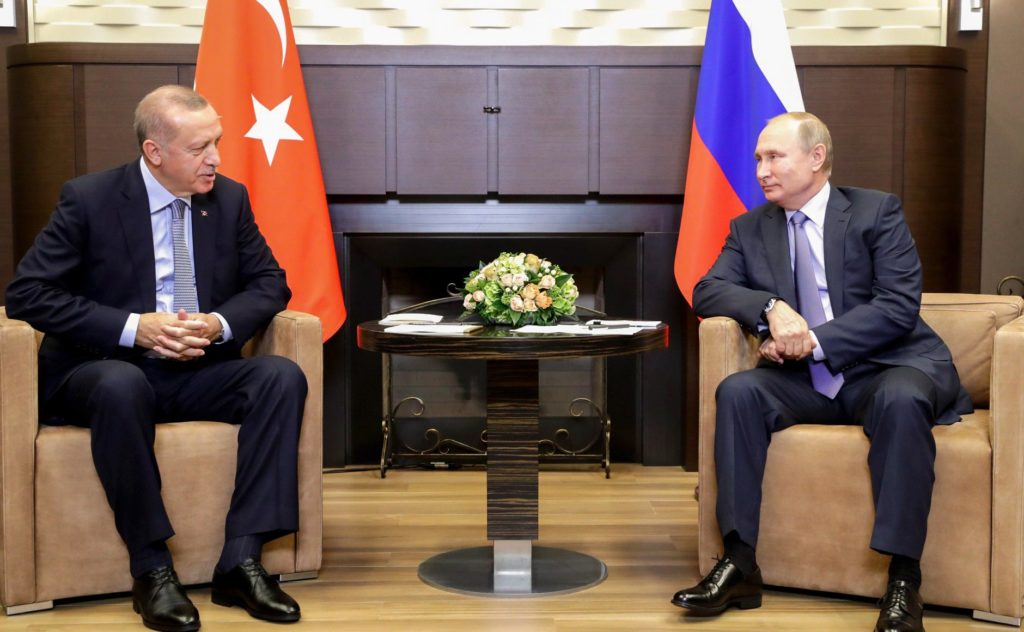Russia and Turkey agreed to a ceasefire and announced plans to form a jointly-patrolled buffer zone on either side of the M4 highway to halt the Syrian army’s offensive in the northwest Idlib province.
The ceasefire is set to begin at midnight, Presidents Recep Tayyip Erdogan and Vladimir Putin said after meeting in Moscow on Thursday, March 5. Rebel forces deemed to be “terrorists” by the United Nations are to withdraw from areas south of the coveted highway, according to the agreement.
Joint Russian-Turkish patrols along the highway are set to begin on March 15 between the Tronba, 2 km west of the contested town of Saraqeb and the settlement of Ayn al-Hayr in neighboring Latakia province. Further details of the buffer zone, which is to span 6 km (3.7 miles) on either side of the highway, will be agreed within a week, Putin said.
The offensive has displaced nearly a million people and strained relations between Turkey and Russia, which back opposite sides in the 9-year conflict.
“At 00:01 tonight, as in, from midnight, the ceasefire will be put in place,” Erdogan said at a news conference after the meeting.
“We agreed a joint document,” Putin said, adding that he hoped it would “serve as a good basis for ending fighting in the Idlib de-escalation zone and ending the suffering of the civilian population.”
Erdogan added that Turkey reserves the right to “retaliate with all its strength against any attack” by Syrian government forces.
Russia and Turkey agreed in 2018 to create a jointly-patrolled buffer zone around Idlib, but jihadist group Hayat Tahrir al-Sham, which is linked to al-Qaeda, refused to withdraw as part of that agreement.
“The regime … is the one to blame for the breakdown of the [2018 Sochi] agreement,” Erdogan said Thursday.
Turkey previously called for international military support to halt the offensive, and threatened to send refugees into Europe.
E.U. High Representative for Foreign Affairs and Security Policy Josep Borrell said he supports a Dutch proposal for a no-fly zone over Idlib, but warned the bloc had no power to make it happen.
A no-fly zone it would require the capability and political will to shoot down Russian and Syrian aircraft.
The U.S., which controls airspace over Syria’s northeast due to the campaign against Islamic State, has said it is not considering military action in response to Turkey’s requests for assistance in Idlib, but is discussing providing material aid.
The U.S. special envoy for Syria, James Jeffrey, has pushed for NATO support for Turkey’s defense of the province.
With reporting from AFP



